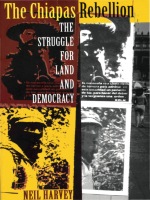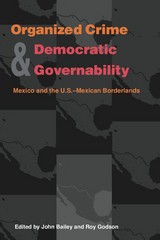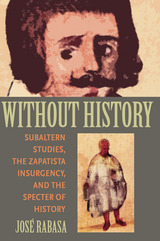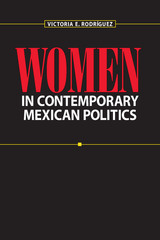
Beginning with an exploration of the history of ethnic and class conflict in Chiapas since the Conquest, Harvey moves specifically to trace the development of peasant and indigenous organizations in Chiapas since the early 1970s. He compares the struggles for agrarian rights of three grassroots movements facing hostility from both local elites and federal bureaucrats. His examination of the complexities of political change in Chiapas includes the impact of neoliberal economic policies, the origins of the Zapatista army of National Liberation (EZLN), and the political impact of the rebellion itself. Engaging with current theoretical debates on the role and significance of social movements in Mexico and Latin America, Harvey focuses on the primacy of political struggle and on the importance of these movements in the construction and meaning of citizenship. While suggesting that the Zapatista revolution has heightened awareness among the people of Chiapas of such democratic issues as ethnicity, gender, and land distribution, he concludes with an analysis of the obstacles to peace in the region today.
This unprecedented study of the Zapatista rebellion will provoke discussion among students and scholars of contemporary Mexico, political science, Latin American studies, history, sociology, and anthropology.

In this first book to view modern Mexico in the era of NAFTA and globalization, In the Shadow of the Giant offers insight into the land on our southern border.
What we find is a nation that looks more like the United States than even Mexicans themselves could have imagined a decade ago: Rates of obesity are second only to the United States among the world's industrialized countries. Recreational drug use is soaring among young Mexicans, Citigroup owns the largest bank in Mexico Wal-Mart is the country's biggest private employer revealing a vastly different physical and cultural landscape from his days as a young journalist living in Mexico in the mid-1980s. Joseph Contreras tracks the relentless and ongoing Americanization of his ancestral home. Although these changes may seem a natural part of globalization, the country had long prided itself on the social, political, economic, and even spiritual differences that distinguished it from the United States. In addition to embracing our virtues and vices, Contreras argues that our southern neighbor has become a de facto economic colony of the United States.
At a time when immigration looms as a leading hot-button issue in American politics, the time is ripe for examining our influences, for better or worse, on our neighbor to the south.

The United States–Mexico border zone is one of the busiest and most dangerous in the world. NAFTA and rapid industrialization on the Mexican side have brought trade, travel, migration, and consequently, organized crime and corruption to the region on an unprecedented scale. Until recently, crime at the border was viewed as a local law enforcement problem with drug trafficking—a matter of “beefing” up police and “hardening” the border. At the turn of the century, that limited perception has changed.
The range of criminal activity at the border now extends beyond drugs to include smuggling of arms, people, vehicles, financial instruments, environmentally dangerous substances, endangered species, and archeological objects. Such widespread trafficking involves complex, high-level criminal-political alliances that local lawenforcement alone can’t address. Researchers of the region, as well as officials from both capitals, now see the border as a set of systemic problems that threaten the economic, political, and social health of their countries as a whole.
Organized Crime and Democratic Governability brings together scholars and specialists, including current and former government officials, from both sides of the border to trace the history and define the reality of this situation. Their diverse perspectives place the issue of organized crime in historical, political, economic, and cultural contexts unattainable by single-author studies. Contributors examine broad issues related to the political systems of both countries, as well as the specific actors—crime gangs, government officials, prosecutors, police, and the military—involved in the ongoing drama of the border. Editors Bailey and Godson provide an interpretive frame, a “continuum of governability,” that will guide researchers and policymakers toward defining goals and solutions to the complex problem that, along with a border, the United States and Mexico now share.

This interdisciplinary study explores the patterns and causes of change in education, work, income, leisure time, marriage, living arrangements, and interactions among extended kin. Theoretical chapters enunciate a theory of family and social change centered on the life course and modes of social organization. Other chapters look at the shift from arranged marriages toward love matches, as well as changes in dating practices, premarital sex, fertility, and divorce.
Contributions to the book are made by Jui-Shan Chang, Ming-Cheng Chang, Deborah S. Freedman, Ronald Freedman, Thomas E. Fricke, Albert Hermalin, Mei-Lin Lee, Paul K. C. Liu, Hui-Sheng Lin, Te-Hsiung Sun, Arland Thornton, Maxine Weinstein, and Li-Shou Yang.

In Without History, José Rabasa contrasts indigenous accounts of the Acteal massacre and other events with state attempts to frame the past, control subaltern populations, and legitimatize its own authority. Rabasa offers new interpretations of the meaning of history from indigenous perspectives and develops the concept of a communal temporality that is not limited by time, but rather exists within the individual, community, and culture as a living knowledge that links both past and present.
Due to a disconnection between indigenous and state accounts as well as the lack of archival materials (many of which were destroyed by missionaries), the indigenous remain outside of, or without, history, according to most of Western discourse. The continued practice of redefining native history perpetuates the subalternization of that history, and maintains the specter of fabrication over reality.
Rabasa recalls the works of Marx, Lenin, and Gramsci, as well as contemporary south Asian subalternists Ranajit Guha and Dipesh Chakrabarty, among others. He incorporates their conceptions of communality, insurgency, resistance to hegemonic governments, and the creation of autonomous spaces as strategies employed by indigenous groups around the globe, but goes further in defining these strategies as millennial and deeply rooted in Mesoamerican antiquity. For Rabasa, these methods and the continuum of ancient indigenous consciousness are evidenced in present day events such as the Zapatista insurrection.

Since the mid-1980s, a dramatic opening in Mexico's political and electoral processes, combined with the growth of a new civic culture, has created unprecedented opportunities for women and other previously repressed or ignored groups to participate in the political life of the nation. In this book, Victoria Rodríguez offers the first comprehensive analysis of how Mexican women have taken advantage of new opportunities to participate in the political process through elected and appointed office, nongovernmental organizations, and grassroots activism.
Drawing on scores of interviews with politically active women conducted since 1994, Rodríguez looks at Mexican women's political participation from a variety of angles. She analyzes the factors that have increased women's political activity: from the women's movement, to the economic crises of the 1980s and 1990s, to increasing democratization, to the victory of Vicente Fox in the 2000 presidential election. She maps out the pathways that women have used to gain access to public life and also the roadblocks that continue to limit women's participation in politics, especially at higher levels of government. And she offers hopeful, yet realistic predictions for women's future participation in the political life of Mexico.

READERS
Browse our collection.
PUBLISHERS
See BiblioVault's publisher services.
STUDENT SERVICES
Files for college accessibility offices.
UChicago Accessibility Resources
home | accessibility | search | about | contact us
BiblioVault ® 2001 - 2024
The University of Chicago Press









